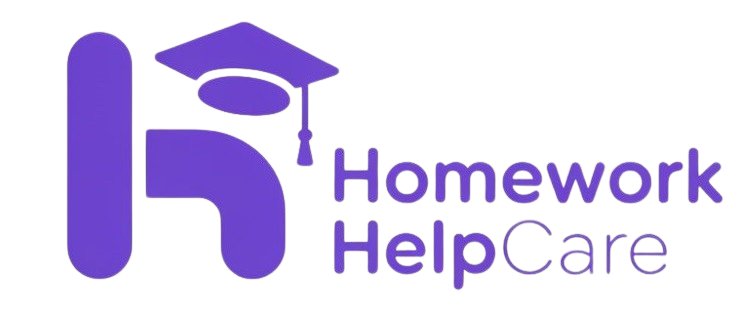Blog
The Growing Importance of Digital Literacy in Homework
Digital literacy in homework has become the cornerstone of academic success for students navigating an increasingly connected world. As traditional pen-and-paper assignments give way to digital platforms, collaborative online projects, and AI-assisted research, students must master a complex web of technological skills to excel in their studies. This fundamental shift isn’t just changing how homework gets done—it’s reshaping what it means to be an educated person in the 21st century.
What is Digital Literacy in Educational Context?
Digital literacy encompasses far more than basic computer skills. Digital literacy skills for students encompass a broad range of abilities essential for navigating the digital landscape effectively. For today’s students, this means developing competencies in information evaluation, digital communication, online collaboration, and responsible technology use—all while completing their daily assignments.
| Core Digital Literacy Components | Application in Homework |
|---|---|
| Information Literacy | Evaluating online sources for research papers |
| Technical Skills | Using software for presentations and calculations |
| Digital Communication | Collaborating on group projects via digital platforms |
| Media Literacy | Creating multimedia presentations and reports |
| Cybersecurity Awareness | Protecting personal data while using educational platforms |
Why Traditional Homework Methods Are Insufficient
The gap between traditional homework approaches and modern digital demands has never been wider. Students who rely solely on printed materials and handwritten assignments find themselves at a significant disadvantage when transitioning to higher education or professional environments. It prepares them for internships, college applications, and eventually, their professional careers.
Essential Digital Literacy Skills for Homework Success
Research and Information Evaluation
Modern homework assignments require students to navigate vast amounts of online information while distinguishing credible sources from unreliable content. This skill involves:
- Source verification techniques using fact-checking websites and cross-referencing
- Understanding bias in digital media and academic sources
- Proper citation methods for digital resources and online databases
- Advanced search strategies using Boolean operators and academic databases
Digital Communication and Collaboration
Digital literacy equips students with the ability to communicate via various digital channels, including email, social media, and video conferencing. Students must master:
- Professional email etiquette for communicating with instructors
- Real-time collaboration tools like Google Workspace and Microsoft 365
- Video conferencing platforms for virtual study groups
- Digital project management tools for organizing group assignments
| Platform Type | Primary Use | Key Skills Needed |
|---|---|---|
| Email Systems | Formal communication | Professional tone, attachment management |
| Collaboration Suites | Group projects | Real-time editing, version control |
| Video Platforms | Virtual meetings | Screen sharing, recording capabilities |
| Project Management | Assignment tracking | Task delegation, deadline management |
Technical Proficiency Across Platforms
Students today must demonstrate fluency across multiple operating systems and software applications. This includes:
- Cross-platform compatibility understanding how files and formats transfer between different systems
- Cloud storage management organizing and sharing files securely
- Software troubleshooting resolving common technical issues independently
- Digital file organization maintaining efficient folder structures and naming conventions
The Impact of Digital Divide on Homework Completion
Access Barriers and Educational Equity
Without a laptop and reliable internet at home, students struggle to complete homework, engage socially with classmates, and risk falling behind. This digital divide creates significant challenges:
- Hardware limitations affecting students without reliable devices
- Internet connectivity issues in rural or economically disadvantaged areas
- Software licensing costs creating barriers to accessing necessary programs
- Technical support gaps leaving students without help when problems arise
Bridging the Digital Gap
Educational institutions are implementing various strategies to address these disparities:
- Device lending programs providing laptops and tablets to students
- Public-private partnerships offering subsidized internet access
- Open-source software alternatives reducing cost barriers
- Digital literacy training programs for both students and families
Integration of AI and Emerging Technologies
Understanding AI Tools in Academic Context
An AI helper is a digital tool that uses artificial intelligence to assist with learning and make it easier for students to study and complete assignments. Students must learn to use these tools ethically and effectively:
- AI research assistants for gathering and organizing information
- Grammar and writing enhancement tools for improving assignment quality
- Mathematical problem-solving aids for complex calculations
- Language translation services for multilingual research
Ethical Considerations and Academic Integrity
The integration of AI tools raises important questions about academic honesty and original work. Students need to understand:
- When and how to appropriately cite AI assistance
- The difference between legitimate help and academic dishonesty
- Institutional policies regarding AI use in assignments
- Developing critical thinking skills that AI cannot replace
| AI Tool Category | Appropriate Use | Potential Misuse |
|---|---|---|
| Research Assistants | Organizing sources, suggesting keywords | Replacing personal research |
| Writing Tools | Grammar checking, style suggestions | Generating entire assignments |
| Problem Solvers | Checking work, explaining concepts | Providing direct answers |
| Translation Tools | Understanding foreign texts | Completing foreign language assignments |
Digital Citizenship and Online Safety in Academic Settings
Protecting Personal Information
Students must develop awareness of privacy and security risks when using educational technology:
- Password management using secure, unique passwords for academic accounts
- Privacy settings understanding how personal information is shared
- Phishing awareness recognizing fake emails and malicious links
- Digital footprint management considering long-term impacts of online activity
Responsible Digital Participation
Digital literacy is about the safe, effective, and responsible use of techs and the internet in classrooms and personal life. This includes:
- Respectful online communication in academic forums
- Understanding copyright and fair use in digital projects
- Avoiding plagiarism in digital environments
- Contributing positively to online learning communities
Preparing for Future Academic and Professional Success
Building Career-Ready Skills
Digital literacy skills provide the foundation for college and career readiness. Students who master digital literacy in homework settings are better prepared for:
- Advanced coursework requiring sophisticated technology use
- Research projects demanding complex information synthesis
- Professional communication in digital workplace environments
- Continuous learning as technology continues to evolve
Developing Critical Thinking in Digital Environments
The ability to think critically about digital information becomes increasingly important as students advance academically. This involves:
- Questioning the reliability and bias of online sources
- Understanding how algorithms influence information presentation
- Recognizing manipulation techniques in digital media
- Evaluating the credibility of user-generated content
Frequently Asked Questions
The most crucial skills include information evaluation, digital communication, technical troubleshooting, and understanding how to use AI tools ethically. Students also need proficiency in cloud-based collaboration platforms and basic cybersecurity awareness.
Students can utilize public libraries, school computer labs, and community centers that offer free internet access. Many institutions also provide device lending programs and partner with internet service providers to offer discounted access to students in need.
AI tools can be appropriate when used ethically and in accordance with institutional policies. Students should use AI for research assistance, grammar checking, and concept explanation rather than generating complete assignments. Always check with instructors about AI usage policies.
Digital literacy skills developed through homework directly transfer to college requirements, including online course participation, digital research projects, virtual collaboration, and communication with professors through learning management systems.
Parents can encourage responsible technology use, help establish digital boundaries, engage in conversations about online safety, and advocate for digital literacy programs in their children’s schools. They can also model good digital citizenship behaviors.


